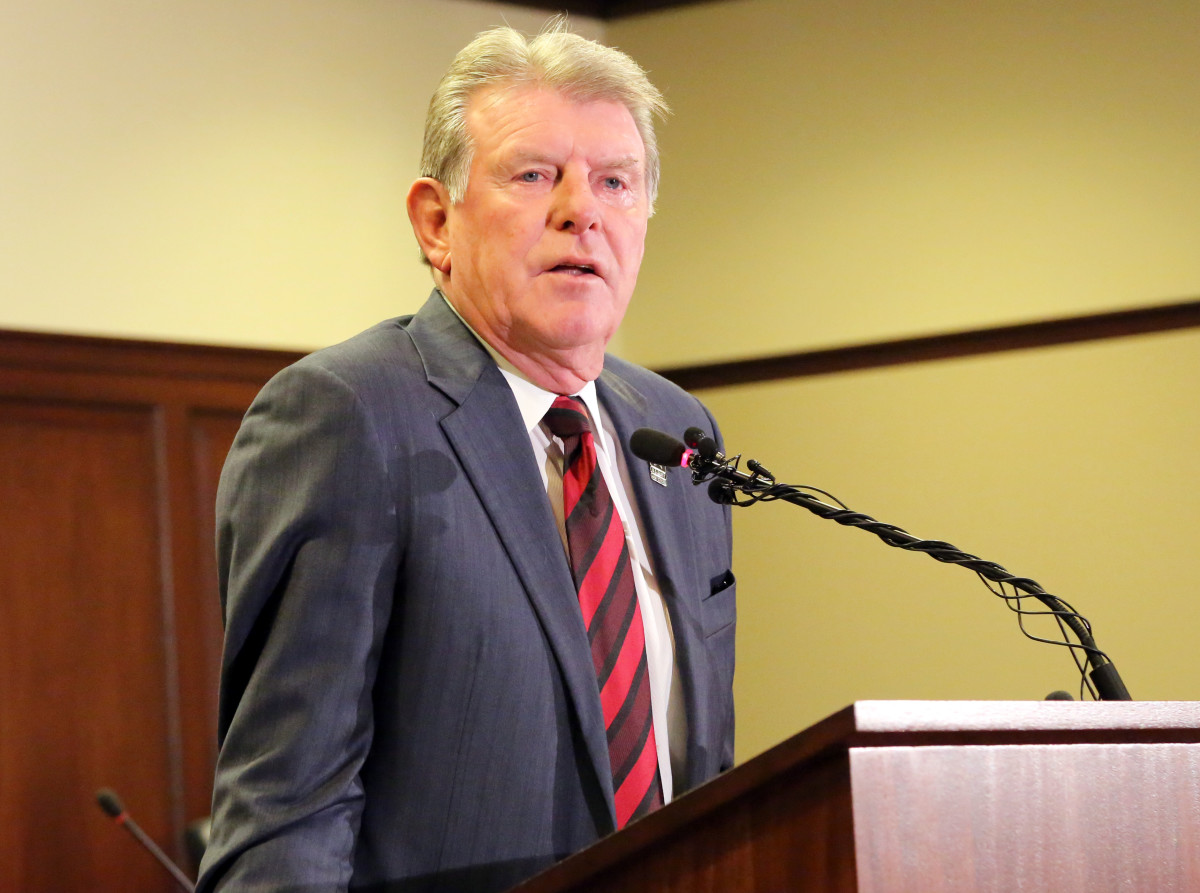Accusing the White House of “an incredible overreach,” Gov. Butch Otter’s staff attorney has urged a federal court to put the brakes on guidelines designed to protect transgender students’ rights.
But in a 34-page legal brief, filed Friday, Otter attorney Cally Younger appears to greatly misstate the potential fiscal impact of the federal policies.

Idaho filed its brief in U.S. District Court in Wichita Falls, Texas, the focal point in the transgender student debate. It is here that Texas and several other states have filed a lawsuit seeking to block the controversial federal guidelines.
A key point in the Idaho brief is that the White House’s May 13 transgender student “guidance” actually constitutes binding policy. Opponents argue that states must comply with the policies, or risk the loss of federal funding for public schools.
“In 2015, Idaho received $161,129,873 in federal education funds,” Younger writes in the state’s brief. “This comprises 34.4 percent of Idaho’s education budget, making Idaho the 15th state that is most dependent on federal education funding.”
The $161.1 million is found in a June federal report on education funding, a document Younger cites in the brief. But that $161.1 million appears to be an incomplete accounting of federally funded programs. Meanwhile, the 34.4 percent figure overstates the feds’ role in funding Idaho education.
In the 2016-17 budget year, which began on July 1, the federal government actually provided $264.3 million for Idaho public schools. But this accounts for only 13.7 percent of Idaho’s public school spending; in 2016-17, Idaho will put close to $1.6 billion of state tax dollars into K-12.
Younger and Otter spokesman Jon Hanian did not immediately respond to email and phone messages Monday afternoon.
The impact on federal funding is a key point in the argument over the transgender policies, and a recurring point in Younger’s brief.
She argues that the federal court can and should issue an injunction, blocking the implementation of the guidelines in all 50 states. Only a handful of states filed the lawsuit, Younger says, but the federal guidelines “threaten loss of all federal education funding for every school district in the country.”
Technically, Idaho is not a plaintiff in the May 25 lawsuit opposing the transgender guidelines.
Instead, Idaho filed an “amicus” brief, also known as a “friend of the court” brief, siding with the plaintiffs. This does not put Idaho on the hook to help pay for the lawsuit. The brief was prepared in-house by Younger.
The most controversial federal guideline pertains to restrooms and other school facilities, and says students should be allowed to use facilities “consistent with their gender identity.” This language drew almost immediate opposition from officials in Idaho and other states.
However, several Idaho school districts have already adopted transgender restroom policies — and some have adopted nonbinding language prepared in 2015 by the Idaho School Boards Association. The ISBA guidelines are nearly identical to White House guidelines.
Idaho’s brief cites several jurisdictional disputes between the federal government and the states. Oddly enough, one historical example was the dispute over the nation’s drinking age. In 1987 — as lieutenant governor and acting governor — Otter vetoed a bill to raise Idaho’s drinking age to 21, accusing the feds of blackmailing the states by threatening highway dollars. A second drinking age bill passed the 1987 Legislature, and then-Gov. Cecil Andrus signed it into law.
In the brief, Younger says transgender student policies are best addressed at the district level, by elected trustees who stand before local voters.
“(Federal officials) presume that local school districts cannot handle this sensitive issue on their own,” Younger wrote in the state’s brief. “While school districts in Idaho are capable of adequately addressing the needs of transgender students, they are not necessarily capable of making substantial changes to existing facilities that would be required under this guidance to ensure that all students’ privacy is protected.”
